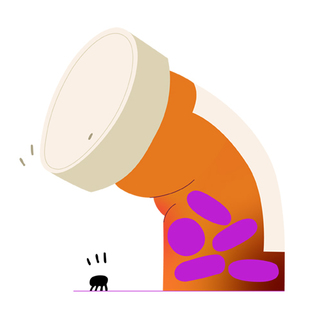
Alex Eben Meyer
When spring rolls around, hiking in the woods comes with a growing threat. Ticks hiding in the brush latch onto human hosts and suck their blood, leaving
disease-causing bacteria and parasites in their wake. Lyme disease is the best known of the infections, but in its shadow lies another disease: babesiosis.
In many people, this parasite-driven condition causes fevers, fatigue, and joint pain, similar to a bout with the flu. In elderly or immunocompromised individuals, however, babesiosis can cause organ failure —and even death. A standard two-drug regimen helps eradicate the infection, but highly immuno-compromised patients can relapse.
Peter Krause, an epidemiologist at the Yale School of Public Health, developed the current babesiosis drugs in 2000, but he knows they have limitations. “There’s no such thing as a perfect drug,” he says. When he received calls from physicians whose patients didn’t respond to those drugs, he searched for better options.
Now, nearly a quarter century later, he has identified a new candidate. In a study published in Clinical Infectious Diseases, Krause reports a handful of cases where tafenoquine prevented babesiosis relapse in high-risk patients. He proposes that the drug may be a promising addition to standard babesiosis treatments.
Tafenoquine is currently approved in the US to treat malaria—making it a logical choice to test for babesiosis. The parasites causing “babesiosis and malaria are found within red blood cells,” Krause says. “They are sort of cousins.”
He tested the drug in five immunocompromised patients who were being treated with standard babesiosis drugs. In some patients, tafenoquine was added to an existing treatment regimen; in others, it was administered alone. Ultimately, four patients successfully avoided relapse, which Krause finds encouraging.
“I suspect that the addition of tafenoquine really makes a difference,” he said. “It can make them better much faster, or, if they get it right away, may even prevent ICU admission.” He also noted that tafenoquine is relatively inexpensive compared to some existing drugs, and it lasts longer in the body, so patients won’t need daily doses.
 loading
loading